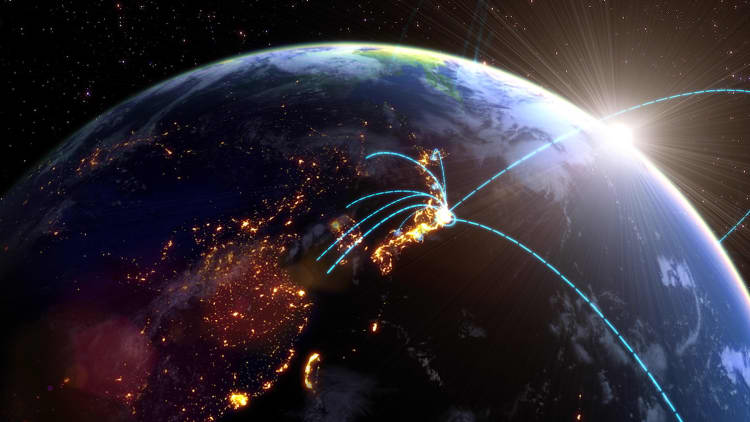Morgan Stanley began coverage of Virgin Galactic's stock on Monday with an overweight rating, saying the space tourism company's shares will soar as it proves out a long-term plan of flying people around the world at hypersonic speeds.
"A viable space tourism business is what you pay for today … but a chance to disrupt the multi-trillion-dollar airline [total addressable market] is what is really likely to drive the upside," Morgan Stanley analyst Adam Jonas wrote in a note to investors.
Virgin Galactic shares rose 16% in trading to close at $8.42. That was its best day of trading since its debut on the New York Stock Exchange on Oct. 28, although the stock remains about 35% below its most recent high.
Shares to triple?
Morgan Stanley's price target of $22 a share represents a 203% increase from Virgin Galactic's current levels. The company outlined a three phase plan to investors during its roadshow earlier this year. While Morgan Stanley gave a $10 a share valuation to Virgin Galactic's space tourism business, phases one and two of its plan, the firm sees $12 a share in value from phase three: Hypersonic point-to-point air travel.
"The shares feature biotech-type risk/reward where today's space tourism business serves as a funding strategy and innovation catalyst to incubate enabling tech for the hypersonic P2P (point-to-point) air travel opportunity," Jonas said.
Jonas, known on Wall Street for his early calls on Tesla, has recently been also looking at the fast-growing space industry.

Morgan Stanley forecast $800 billion in annual sales for hypersonic travel by 2040, or just about two decades from now. Virgin Galactic is in the early stages of exploring how the technologies it developed for space tourism might apply to hypersonic travel, with Boeing venture arm HorizonX recently investing $20 million into Sir Richard Branson's company specifically to explore hypersonics.
"While some investors have described high-speed hypersonic P2P air travel opportunity as 'the icing on the cake', we see Hypersonic as both the cake and the icing, with Space Tourism as the oven," Jonas said.
The firm is the third on Wall Street to begin covering Virgin Galactic's stock. Credit Suisse and Vertical Research Partners also have buy ratings.
First space tourist flight in 2020
Virgin Galactic expects to begin flying its first space tourism customers in the next six to nine months. Morgan Stanley estimates Virgin Galactic can ramp its flight offerings to serve more than 3,000 passengers by 2030, as Jonas says "the addressable market for space tourism, while niche, is supported by a range of industries (e.g., yacht charters and luxury cars)."
"Space Tourism's goal over the next year: be safe, stay funded," Jonas said. "We believe the key catalyst over the next 12 months will be sending even one customer to space and returning safely."
If the company does that, Jonas said Virgin Galactic will remain the leader among companies exploring the hypersonic travel market. In full, Morgan Stanley has a $60 bull case valuation on Virgin Galactic and a $1 bear case valuation.
"There are many risks and unknowns to the story – including the possibility of fatal accidents, regulatory obstacles, limited market acceptance, competition, insufficient economics, and liquidity constraints," Jonas added. "Taken together, we think the risks are offset by the potential scale of the reward."



